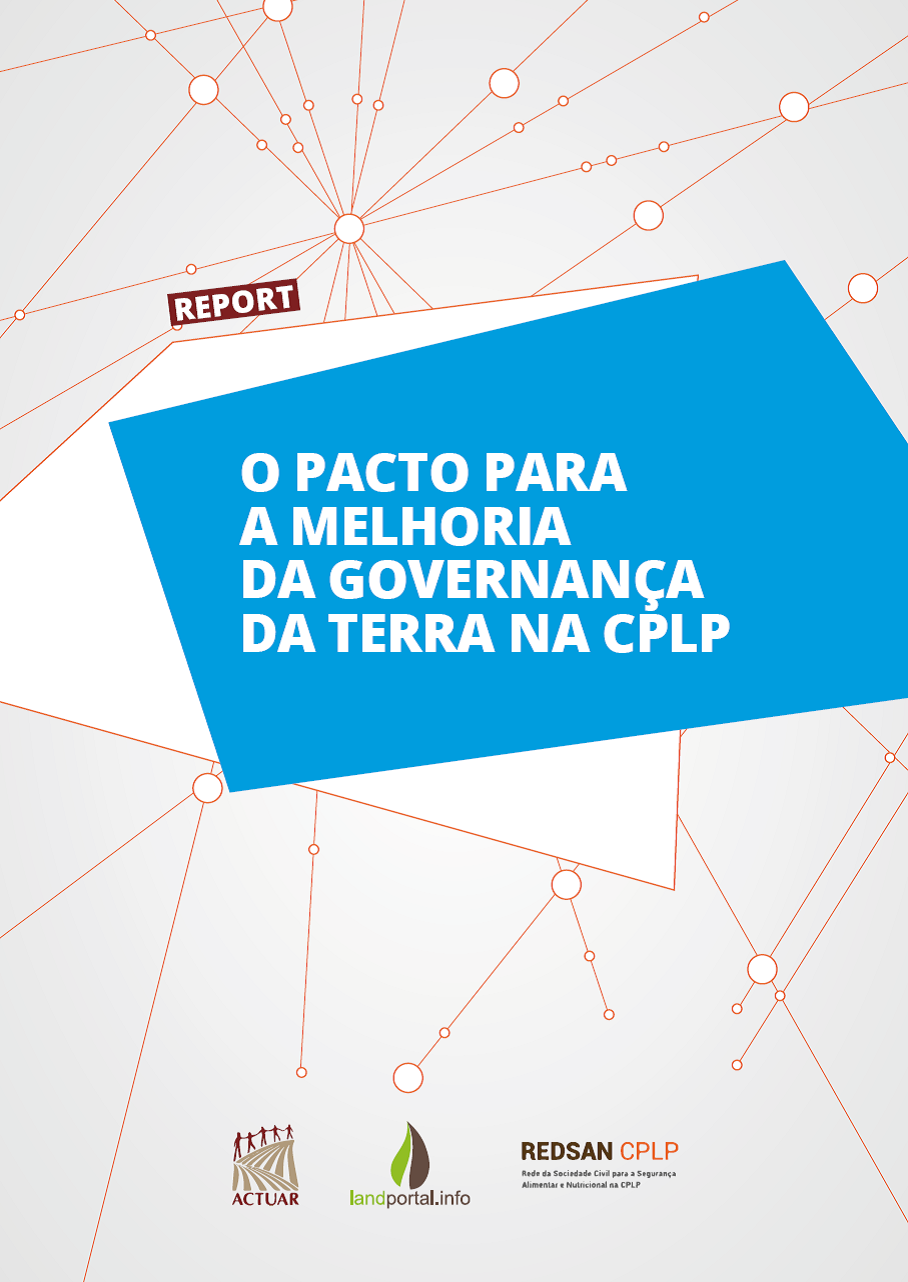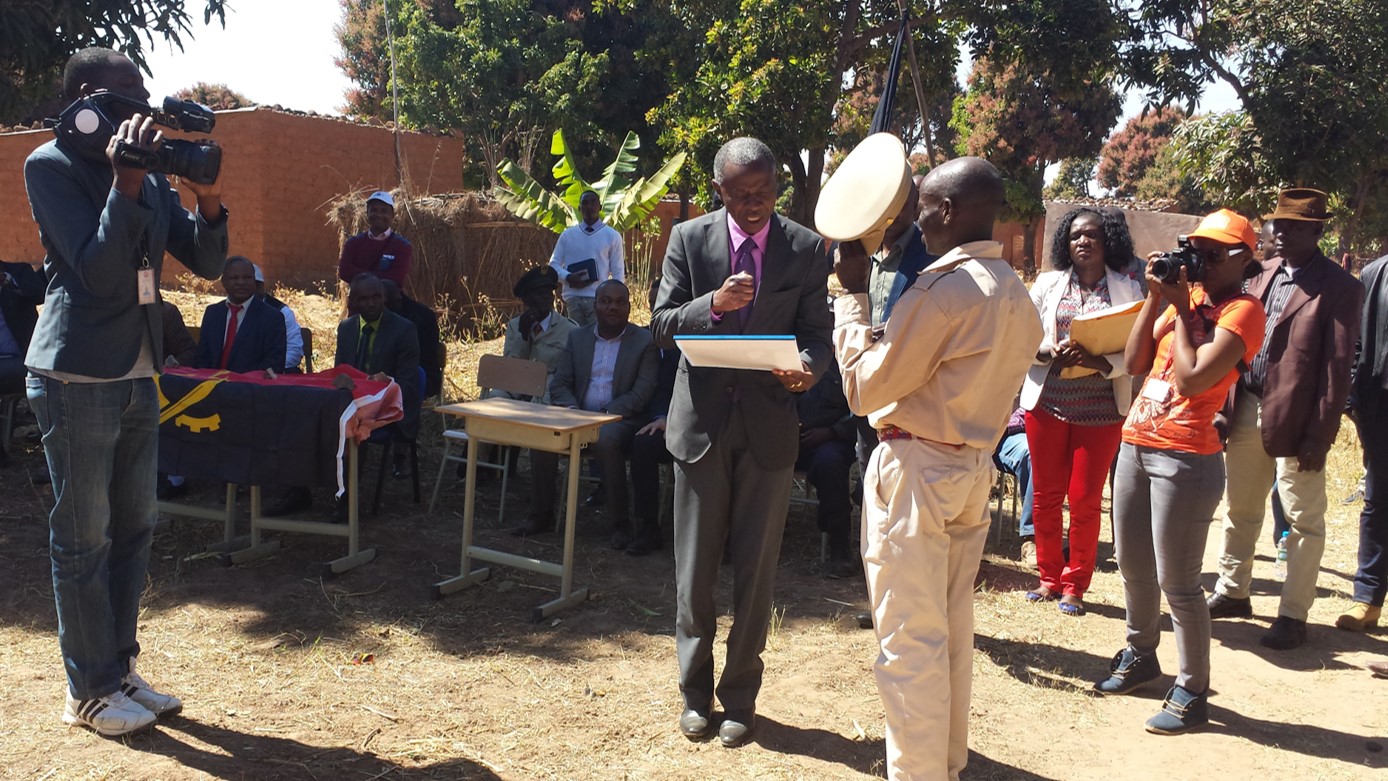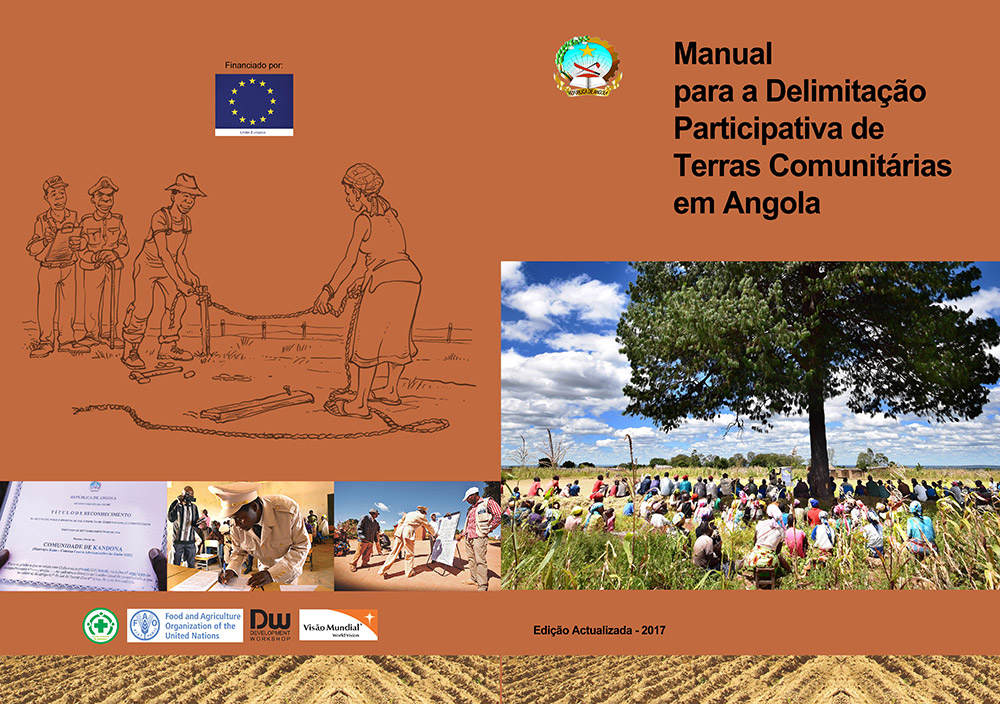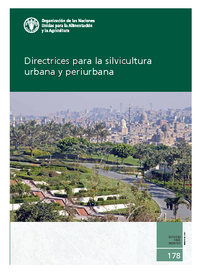This Presidential Decree, consisting of 156 articles divided into seven Chapters and one Annex, regulates the principles and norms for the organization and functioning of Local Government Bodies, establishing the respective organizational structures, as well as their operational mechanisms in…
Na sequência do Segundo Fórum para a Agricultura Familiar e Segurança Alimentar e Nutricional na Comunidade dos Países de Língua Portuguesa (FAFSAN II–setembro de 2016), onde a sociedade civil propôs um Pacto Multi-atores para a Governança Sustentável da Terra na Comunidade dos Países de Língua…
Effective recognition of customary land rights is still a challenge in Angola, as in many other African countries. Despite customary land rights of the traditional rural communities are expressly recognized in the 2004 National Land Law, very few communities in Angola have been able to register…
In view of the lack of human resources with specific competencies in costumary land rights, within the past two decades FAO and various non-governmental organizations have developed materials and methodologies for the dissemination of the Land Law and the participatory delimitation of rural…
In view of the lack of human resources with specific competencies in customary land rights, within the past two decades FAO and various non-governmental organizations have developed materials and methodologies for the dissemination of the Land Law and the participatory delimitation of rural…
Diretrizes de Apoio e Promoção da Agricultura Familiar nos Estados membros da CPLP aprovadas na II Reunião extraordinária do Conselho Regional de Segurança Alimentar e Nutricional da CPLP (CONSAN-CPLP)
Suplemento do Jornal de Angola sobre agricultura e desenvolvimento
O kit pedagógico “Governação comunitária de florestas para crianças” destina-se a todos os compartes, profissionais, investigadores, professores e educadores envolvidos com as florestas comunitárias e que queiram abordar a governação comunitária de recursos naturais e a educação para a cidadania…
Este documento es el resultado final de ese proceso. Dirigido a una audiencia mundial – que comprende las instancias decisorias urbanas, funcionarios públicos, asesores políticos y demás partes interesadas – contribuirá al desarrollo de bosques urbanos y periurbanos que ayuden a las ciudades a…
Meeting Name: Commission on Genetic Resources for Food and Agriculture (CGRFA)
Meeting symbol/code: CGRFA-16/17/Inf.15
Session: Sess. 16
Meeting Name: FAO Committee on Forestry
Meeting symbol/code: COFO 2016/REP
Session: Sess. 23
Meeting Name: African Forestry and Wildlife Commission
Meeting symbol/code: FO:AFWC/2016/8.2
Session: Sess. 20










